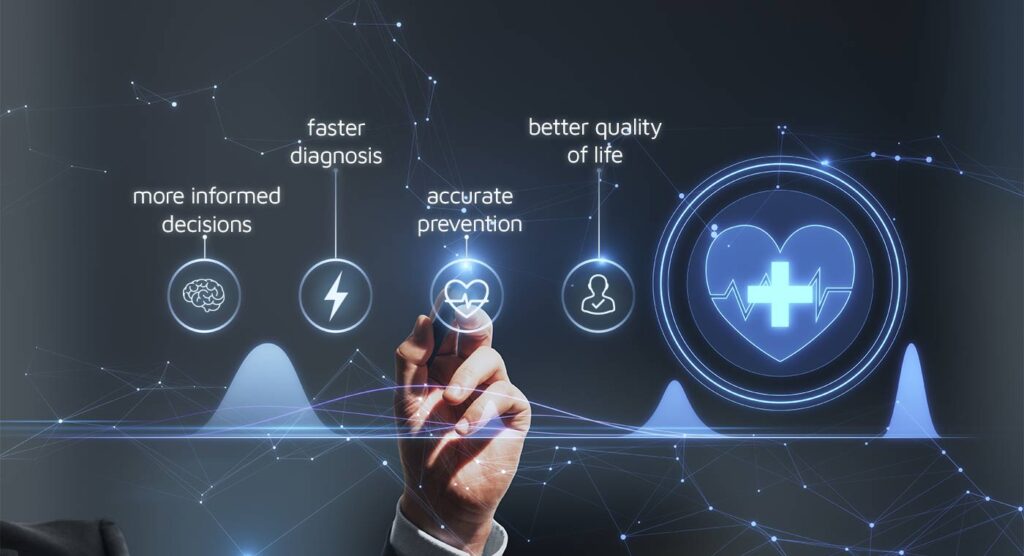Today, thanks to digital health technologies, it is possible to achieve an high level of patient wellness. The digital transformation applied to healthcare (which becomes digital health or e-health) results in a range of IT platforms, IoT sensors, equipment and medical software that enhance diagnostic and treatment capabilities.
Big data enable a new approach to health information and marketing, suitable for promoting the therapies and services of healthcare companies in the age of progressive advertising. The healthcare marketing strategy relies as much as possible on evidence from statistical and scientific data to help citizens better understand the practices of private and public healthcare companies.
These data are collected by means of healthcare apps, CRM, social media and DEM campaigns. The places where the information is provided are: hospitals, medical offices and institutional entities.
Table of contents
The impact of healthcare digital transformation on health
- the use of electronic records and prescriptions;
- the delivery of therapies via smart devices;
- the use of virtual assistants with artificial intelligence (AI) to handle less urgent patient requests.
This is referred to as Internet of Medical Things (IoMT) and Health IT. The first consists of the ability of objects for medical use to connect to the Internet and communicate with each other, speeding up diagnosis and treatment; the second relates to information technology in healthcare, i.e. hardware, software and infrastructures useful for the performance of clinical, administrative and financial activities typical of healthcare.

The benefits of healthcare digital transformation
- enables patients to make more informed decisions;
- speeds up diagnosis;
- facilitates prevention;
- improves quality of life.
- it cuts costs;
- reduces waste;
- facilitates access to health information;
- makes everything “smarter”.
A paradigm change
A report by Market Data Forecast estimates that, in the US alone, the turnover of the healthcare digital transformation will grow from USD 12.9 billion to USD 26 billion in 2025, an annual growth rate of 14.8%, a sign that patient care will increasingly take place via electronic technologies for remote clinical care (telemedicine).
Already today, the digitisation of healthcare makes it possible to monitor, in real time and remotely, a patient’s state of health, implementing “precision medicine”, an approach to the treatment and prevention of diseases that takes into account individual variability, genetic characteristics and lifestyle.
Healthcare digital transformation trend 2023
1. Software as healthcare
2. Artificial intelligence (AI) and machine learning (ML)
3. Telemonitoring and remote surgery
4. Smart surveillance of psychiatric patients
5. Drones for rapid organ transport
6. Virtual Reality (VR) and Augmented Reality (AR)
7. Cybersecurity
8. Medical app
9. Connected care system

Healthcare digital transformation improves patients’ lives
It is clear that healthcare digital transformation improves patients’ lives, so a joint effort is required from all stakeholders. Protecting people’s health is the mission of one of our companies, IPPOCRATE AS, and is obviously close to the heart of the entire JO Group cluster. If you are looking for partners for e-health, m-health, healthcare software and healthcare digital transformation projects, please contact us by using the contact form below. A team of professionals will contact you back.
JO Group: #borntoinnovate

